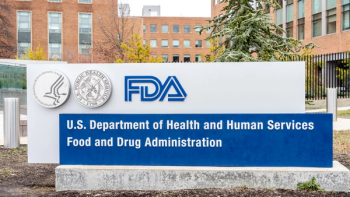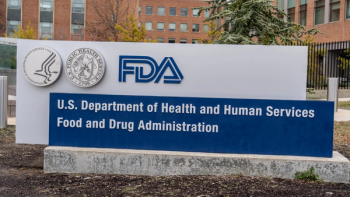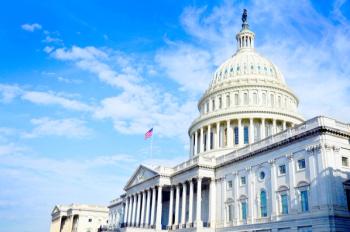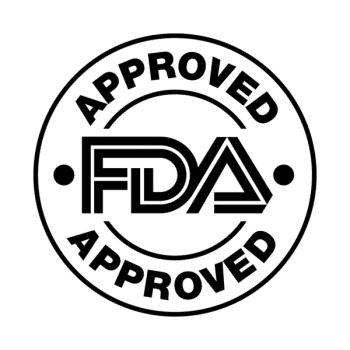
Regulatory
Latest News
Latest Videos

Shorts




More News

FDA PreCheck will provide benefits to manufacturing sites that fit criteria focused on benefiting the United States.

How demand-driven development will help new products be more successful.

The preservative, which contains a form of Mercury, has long been the target of anti-vaccine groups, despite studies demonstrating its safety.

The FDA's approval is based on results from the Phase III CEPHEUS study, showing deeper and more durable responses compared with standard therapy.

When researchers excluded studies that did not use proper methods to collect data, the results showed no connection between the medication and genetic disorder.

FDA’s decision to limit regulations of non-medical grade wearables marks a notable shift toward regulatory restraint in digital health.

FDA approval of Vanda’s Nereus marks a rare and meaningful regulatory milestone, introducing the first new pharmacologic option for motion sickness in decades and underscoring renewed innovation in a long-neglected but widely impactful condition.

The approval marks the first agency-cleared oral formulation of a GLP-1 drug for obesity.

Roche’s FDA approval of Lunsumio VELO as a one-minute subcutaneous bispecific therapy for relapsed or refractory follicular lymphoma marks a meaningful advance in reducing treatment burden while preserving strong response rates in later-line disease.

Nine more companies have joined the DTC government-run website, which is set to launch sometime next year.

The bill was part of the larger Defense Bill and will impact funding available to certain foreign companies.

Novo Nordisk’s NDA filing for CagriSema positions the first fixed-dose amylin–GLP-1 combination as a potential next-generation obesity therapy, backed by Phase III data showing more than 20% weight loss and signaling the company’s intent to extend its leadership beyond single-mechanism incretins.

The representatives from Pennsylvania and New York, joined with Democrats to force a vote on legislation against Speaker Johnson’s wishes.

The approval is supported by Phase III SWIFT-1 and SWIFT-2 trial data showing that twice-yearly dosing of Exdensur significantly reduced annualized asthma exacerbation rates compared with placebo when added to standard of care.

The approval is based on Phase III DESTINY-Breast09 data showing the Enhertu–Perjeta combination significantly improved progression-free survival compared with the current taxane-based standard of care in previously untreated metastatic disease.

The FDA’s approval of Lerochol introduces a once-monthly, subcutaneous PCSK9 inhibitor for lowering LDL cholesterol in adults with hypercholesterolemia.

The 16th addition to the FDA Commissioner’s National Priority Voucher pilot program follows Phase III MajesTEC-3 trial data showing significant survival benefits for the Tecvayli-based regimen compared with standard of care in treating relapsed or refractory multiple myeloma.

FDA Approves Amgen's Uplizna for Generalized Myasthenia Gravis With Positive AChR or MuSK Antibodies
The FDA’s approval of Uplizna for antibody-positive generalized myasthenia gravis introduces a twice-yearly CD19-targeted therapy option for the rare autoimmune condition.

TrumpRx’s promised drug-price cuts expose a deeper systemic flaw, positioning direct-to-patient clinical pathways as the infrastructure pharma must build to turn political headlines into real access and outcomes.

Experts weigh in on FDA’s new accelerated review program, revealing what companies stand to benefit the most from the initiative.

Amid the US reshoring push, drugmakers navigate geopolitical and supply chain risks.

FDA’s approval of Augmentin XR as the first therapy cleared under the new National Priority Voucher Pilot Program signals a decisive push to strengthen domestic antibiotic manufacturing, accelerate critical drug reviews, and stabilize long-strained U.S. antimicrobial supply chains.

New FDA guidance signals a major shift for CAR-T development, calling for randomized trials with standard-of-care control groups and clear evidence of superiority over existing therapies, while simultaneously easing REMS requirements to reduce logistical burdens for treatment centers and patients.

Welcome to Pharm Exec's new guest column on navigating the geopolitical risks challenging core company strategies in today's shifting global landscape for healthcare.

FDA’s approval of Bristol Myers Squibb’s Breyanzi as the first CAR T therapy for relapsed or refractory marginal zone lymphoma underscores the therapy’s expanding leadership in B-cell malignancies, backed by compelling Phase II data














